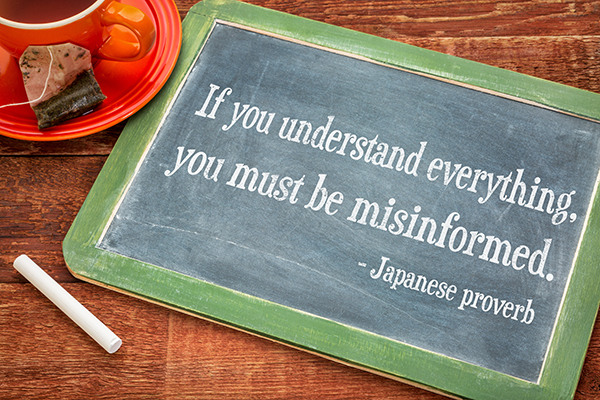
How to Nail your next Executive Job Interview

Ms. Pomerantz is the CEO of TPG Staffing LLC and has over 35 years’ experience in recruiting top talent for some of the largest companies in the world and start-ups alike. She earned a BS from the University of Pittsburgh and a Master’s in Human Resource Management from Rutgers University. She also has senior HR credentials, including both SPHR and SHRM-SCP certifications.

When preparing for an executive job interview you always want to “do your homework” and try to be ready for any question they may throw at you. This can involve research into the company and its values, mission, and history. It can also involve researching the position you are applying for and familiarizing yourself with not only what the company is specifically looking for but also the issues and challenges facing individuals in similar positions in the broader marketplace. You want to be prepared for “anything that they can throw at you,” and impress them with your knowledge and critical thinking skills. But, what happens if they ask you a question that you haven’t prepared for, one that leaves you genuinely “stumped” for an answer?
3 Steps to Prepare for an Executive Job Interview

Dig Deep with your Research
In any interview, you want to know as much as possible about the company and the people you’re meeting. But, at the executive level, this research should go beyond broad strokes to knowing the company’s financial situation, what challenges it’s facing and its leaders’ backgrounds. Other questions to research are:
Where is the company outperforming its competitors? Where is it falling short?
What new products or services do the competitors have planned for the near future, and how might this affect the industry? Knowing the answers to these questions demonstrates your knowledge and curiosity while also enabling you to ask some probing questions of your own.
Show off a Vision That Produces Results
At the executive level, interviewers are looking for concrete proof that you can deliver measurable results for the whole organization — and that your leadership style is a good fit for the culture. Being able to articulate your leadership philosophy and back up those big picture ideas with real-life examples will strengthen your case that you are ready to make the move into the executive ranks. If asked
“What was the hardest lesson you had to learn as a manager?”
your answer should describe a difficult situation you faced, how you addressed that particular instance and how it changed your leadership style and habits going forward.
Practice your Executive Presence
Before the interview, try putting your body through a series of “power poses,” which are ways of standing or sitting that make your body look bigger and take up more space.
These poses — such as putting your hands behind your head with your elbows out, or standing in a victory pose with your arms in the air—can actually have a biochemical effect on your mood and boost your confidence.
During the interview, sit in a relaxed but attentive manner and concentrate on slowing your breathing and the speed of your speech down as much as possible.
Avoiding the Temptation to “Bluff Your Way Through It”
Many executive job interview candidates, when faced with a question they are unprepared to answer, will attempt to disguise their lack of knowledge about a given subject in order to move on quickly to the next question that they are hopefully more prepared to answer. They might employ vague platitudes or simply “make something up on the spot” to try to move the process along until it returns to an area of firmer ground in terms of their knowledge and skills. This is almost always a mistake.

The Importance of Intellectual Humility
When one tries to bluff their way through an interview question that they are unprepared to answer, they are actually demonstrating that they lack a crucial personality trait of successful leaders that researchers refer to as “intellectual humility.” Defined as “recognizing the limits of one’s knowledge and appreciating others’ intellectual strengths,” intellectual humility has been shown by numerous studies to be critical for leaders to lead successful teams. These studies have shown that individuals with intellectual humility were more open to learning about opposing views and open to growth, essential factors in any leader’s personal and professional development over time. [1]

Admitting the Limits of Your Knowledge Marks You as a Better Learner
Displaying intellectual humility in a job interview by admitting the limits of your knowledge rather than trying to bluff your way through difficult questions may actually make a much stronger impression. This is particularly true when interviewing for high-level executive jobs where the competition among highly-skilled individuals is most fierce. According to Laszlo Bock, the former VP of people operations at Google, the willingness to admit what you don’t know is a prerequisite to the critical executive function of diagnosing and learning from failures — and this intellectual humility is often in short supply among those who have had a history of previous success.

“Successful, bright people rarely experience failure so they don’t know how to learn from failure. They instead commit the fundamental attribution error, which is if something good happens, it’s because I’m a genius . . . but if something bad happens, it’s because someone’s an idiot or I didn’t get the resources or the market moved.“
– Laszlo Bock, Former Senior VP of People Operations at Google [2]
From his experience conducting executive job interviews at Google, Laszlo identified the lack of intellectual humility as a common flaw among the crop of high-performing and otherwise successful candidates from which the company recruited. And, this caused him to seek out candidates who were willing to admit the limits of their knowledge and express a desire to learn more about areas with which they were unfamiliar. The experience of current Google CEO Sundar Pichai during his executive job interview process illustrates how one’s response to a “tricky question” can make all the difference in how the company views the candidate’s potential leadership qualities.
A Case Study: Google CEO Sundar Pichai
When Google’s current CEO, Sundar Pichai, interviewed for his first position at Google as the VP of Product Management in 2004 he went through a multi-round process of interviews. In many of the early rounds, interviewers asked him what he thought of Google’s new email service, Gmail. Since Gmail had just been launched and was still an “invite-only” service, Pichai hadn’t had a chance to use the service yet. He could have tried to bluff his way through the question but instead responded that he couldn’t answer the question because he hadn’t been able to use the product. After being shown how the service worked by one of his interviewers, he was then able to start answering this question when it was asked to him by later interviewers. By taking this approach, Sundar Pichai was able to demonstrate intellectual humility, straightforwardness, and honesty to his potential employer.
The Importance of the “Why”
A critical detail of Pichai’s response to this question was that he didn’t just say “I don’t know;” he explained why he couldn’t answer the question (his lack of exposure to the service), expressing curiosity and giving the interviewer the opportunity to educate him on the service so that he could then give his honest assessment. In other words, he didn’t just score points for giving an honest and humble answer to the question; he created an opportunity where he could then demonstrate his ability to quickly understand a new idea and offer informed conclusions about it. If Pichai had attempted to bluff his way through this question, he would have missed the chance to demonstrate his true value to the company as a forthright and intellectually humble individual who could quickly bring his analytical mind to bear on new and innovative products and services. Sounds like the recipe for the perfect candidate for a cutting-edge technology company like Google, doesn’t it? It’s no surprise that Sundar Pichai got the job and was subsequently promoted to CEO.

Putting This Lesson into Practice
So, how can you put this lesson into practice and really “nail” your next executive job interview? Well, to start with, it’s never a good idea to try to bluff your way through questions where your knowledge is limited or incomplete. This can demonstrate a level of dishonesty or arrogance on your part and can even be seen as insulting to the interviewer across the table from you, as its presumed effectiveness relies on the assumption that they lack the insight (or knowledge of their own product, service, or field) to determine that you are simply bluffing your way through your answer. This approach can therefore backfire dramatically, leaving the interviewer with a much more negative impression of you than they would have had if you simply admitted that you didn’t know the answer. In addition, an honest approach gives you the opportunity to demonstrate intellectual humility and potentially and learn more about a subject that will then enable you to showcase your ability to quickly learn new knowledge and apply your analytical skills to new areas.
It Can Be Tough to Stand Out From the Crowd

How You Do This Is Important
However, as in the example of Sundar Pichai at Google, the specific way you go about answering these “tricky questions” is important as well. You always want to include a “why” in your response, highlighting the idea that you are open to learning about an area that you may not have been exposed to in the past. This gives the interviewer the opportunity to share some information with you that could prove very helpful to you as the interview progresses. From a human psychology standpoint, it also enables the interviewer to “demonstrate mastery” of a subject to you which invariably will enhance their overall positive attitude during the interview. In this way, your lack of knowledge about a specific area (properly stated in the frame of intellectual humility and willingness to learn) can actually (ironically) improve your chances of landing the job rather than decrease them.
How TPG Staffing Can Help
Looking for an opportunity to put these tips into action in an executive job interview for a challenging new position? TPG Staffing can be a great place to start. We are always on the lookout for highly skilled candidates to fill the executive openings at our clients’ organizations. And, who knows? With the right mix of experience and expertise (and an added dash of intellectual humility), you might be the perfect fit for one of these exciting opportunities. Just give us a call at 732-246-7100 to get started.